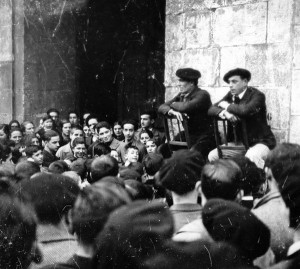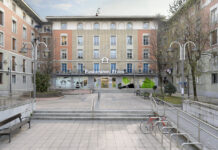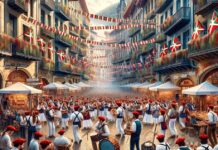This article was translated by John R. Bopp
Our regular readers will remember Amanda Gonser, as she wrote an amazing article on the Olentzero for a newspaper in Washington state which we discussed here. We knew then we’d be blogging about her again. Today, it’s thanks to an article she’s written about bertsolarismo on the Big World blog, whose objective is to highlight lesser known realities that our globalized, homogenized media often leave behind while focusing on what’s better known.
This article was written by a person we simply must call “a friend of the Basques”. By that, we want to highlight the fondness and interest that some from outside our borders have in sharing a true and fair vision of who we are and what we do. This is in stark contrast to the negative stereotypes that others who don’t have any fondness for us have managed to make us most known for.
We’re sure that the hard word of many friends of the Basques can put a stop to that twisted view many have of the Basque People. Unfortunately, people and peoples are not what they are, but rather what others think they are. That’s why the extraordinary work of people like Amanda is so necessary for our future.
Eskerrik asko!
Big World – 12/1/2012 – USA
A Basque Poetry Slam. Defying Franco to keep an endangered language alive

Only traceable to the beginning of the 19th century, these spoken verses were mainly sung by literary people, typically in informal settings (at dinners, or while drinking with friends). Although there are no records of bertsos from long ago, the tradition likely stretches back much further. It’s still a rich custom in the Basque country where I live.
(Follow) (Automatic translation)
Last Updated on Dec 20, 2020 by About Basque Country





